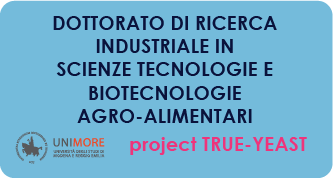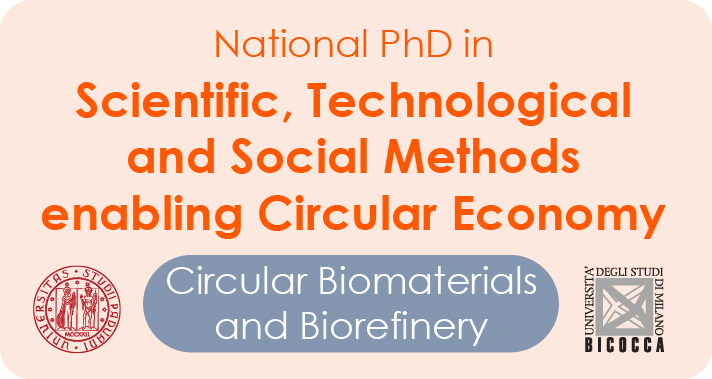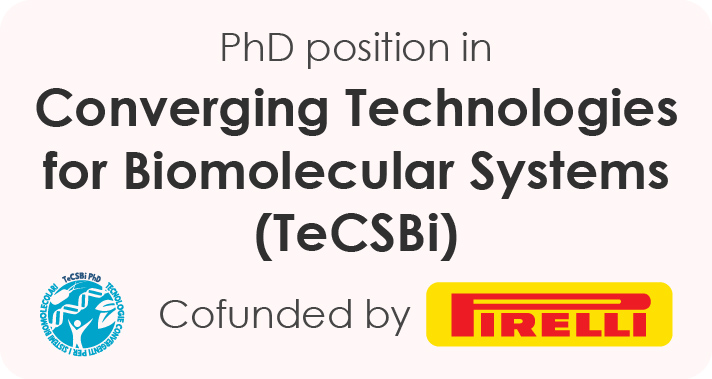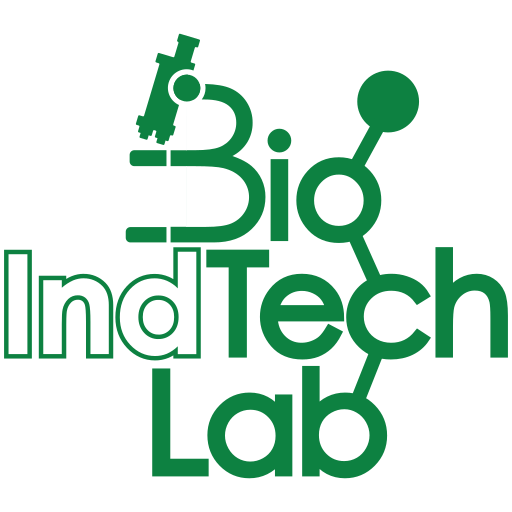Fellowship in the FUN CLUB Project
Production of functional bacterial cellulose by a circular biotechnological platform
The FUN CLUB project will be laid at the interface between the fields of green and sustainable chemistry and circular bioeconomy. FUN CLUB aims to develop novel BC-based functional materials for various applications by exploiting a full biotechnological, sustainable, green and circular pipeline.
The aim of the research will be the development of novel BC-based functional materials for various applications by exploiting a full biotechnological platform. This willbe achieved by the use of residual biomasses as sources of BC sugar building blocks, the use of enzymes to selectively modify the BC sugar building blocks and the exploitation of BC producing bacteria for assembling these building blocks into a functionalized biopolymer.
Deadline for application: Sep 9th 𝟮𝟬𝟮4
Duration: 13 months, from Nov 1st 2024
Salary: €35K (~1900 €/month)
Check the call for application for all the details.
Past announcements
Posizioni di tesi magistrale A.A. 2024-2025 [english version below]
IndBiotech Lab offre la possibilità di svolgere un percorso di tesi magistrale sperimentale sui seguenti progetti, avendo come relatore la Prof.ssa Paola Branduardi, la Prof.ssa Valeria Mapelli, o la Dott.ssa Immacolata Serra (a seconda del progetto). I percorsi proposti hanno una durata prevista di circa 10 mesi, con inizio nell’autunno 2024.
Inoltre, IndBiotech Lab offre la possibilità di svolgere un percorso di tesi magistrale sperimentale esterno avendo come relatore il Prof. Dario Pescini.
1. Up-cycling del PET (relatore: Prof.ssa Branduardi): il lavoro di tesi si colloca all’interno dei progetti REPLAY (REconnecting PLAstics life cycle to biogeochemical cycles by sustainable hydrolysis and Yeast fermentation) e A2C (Agro2Circular), che mirano all’up-cycling del PET (polietilene tereftalato) post consumo. Durante il periodo di tesi magistrale verranno sviluppati ceppi di lievito ingegnerizzati per la conversione dei monomeri del PET in platform chemicals, coniugando tecniche di biologia sintetica e fermentazioni.
2. Approcci biotecnologici a supporto di un’agricoltura sostenibile – SIPCAM OXON (relatore: Prof.ssa Mapelli): SIPCAM OXON è un gruppo multinazionale italiano, focalizzato sull’agricoltura, che fornisce una gamma di prodotti sostenibili e innovativi per la protezione delle colture. Il progetto di tesi magistrale si focalizzerà su studio, produzione ed uso di enzimi per la sintesi di agrofarmaci. A partire dallo studio della letteratura esistente, verranno individuati enzimi di interesse di cui poi verrà progettata una produzione in cell factory microbiche in scala di laboratorio, che verrà poi verificata in termini di attività sul terreno, per definire i parametri quantitativi per le future valutazioni industriali.
3. Studio della fisiologia dei lieviti Zygosaccharomyces bailii e Z. parabailii con tecniche di biologia sintetica (Relatore: Prof.ssa Paola Branduardi): il progetto di tesi si focalizzerà sullo studio del metabolismo del lievito acido tollerante Zygosaccharomyces bailii e sull’ottimizzazione di metodiche CRISPR/Cas9 per la manipolazione genica di tale lievito e dell’ibrido Zygosaccharomyces parabailii. Il candidato acquisirà competenze nello sviluppo di questa potenziale cell factory, coniugando tecniche di biologia sintetica e fermentazioni, anche in bioreattore.
4. Materiali e processi sostenibili per la produzione di pneumatici (relatore: Dott.ssa Serra): il progetto nasce dall’insieme di due percorsi di dottorato finanziati dal consorzio CORIMAV. Lo scopo di questi progetti è di rendere più sostenibili i materiali ed i processi attualmente utilizzati nel settore degli pneumatici, intervenendo sull’intero ciclo di vita del prodotto, from-cradle-to-grave. All’interno del progetto di tesi magistrale saranno quindi approfondite tecniche di isolamento e caratterizzazione di microorganismi in grado di degradare materiali polimerici e tecniche analitiche e di sintesi biochimica atte all’identificazione e caratterizzazione di polimeri di origine naturale.
5. (Tesi esterna) “Caratterizzazione computazionale del metabolismo di composti derivati dalle plastiche in ceppi di lievito ricombinanti” (relatore: Prof. Pescini): il lavoro di tesi si focalizzerà sullacostruzione direti metaboliche genome-scale di ceppi di lievito ricombinanti per la caratterizzazione del metabolismo di specifici composti derivati dalle plastiche. Un approccio di modellazione constraint-based verrà utilizzato per la simulazione delle reti ricostruite al fine di massimizzare la produzione dei composti di interesse e identificare specifici punti di interesse all’interno delle reti che possano essere responsabili di un’alterata produzione di tali composti.
Se sei interessato, compila il form dedicato! I candidati selezionati verranno ricontattati per un ulteriore incontro conoscitivo.
🇬🇧 Master thesis positions (2024-2025)
IndBiotech Lab offers the possibility of an experimental master’s thesis on the following projects, with either Prof. Paola Branduardi, Prof. Valeria Mapelli, or Dr. Immacolata Serra (depending on the project) as supervisor. The thesis will have an expected duration of about 10 months, starting in fall 2024.
Additionally, IndBiotech Lab offers the possibility of an external experimental master’s thesis with Prof. Dario Pescini.
1. PET up-cycling (supervisor: Prof. Branduardi): the thesis work is within the REPLAY (REconnecting PLAstics life cycle to biogeochemical cycles by sustainable hydrolysis and Yeast fermentation) and A2C (Agro2Circular) projects, which aim at the up-cycling of post-consumer PET (polyethylene terephthalate). During the master’s thesis period, engineered yeast strains will be developed for the conversion of PET monomers into platform chemicals by combining synthetic biology techniques and fermentations strategies.
2. Biotechnological approaches to support sustainable agriculture – SIPCAM OXON (Supervisor: Prof. Mapelli): SIPCAM OXON is an Italian multinational group, focusing on agriculture and providing a range of innovative and sustainable Crop Protection Products. The master’s thesis project will focus on the study, production, and use of enzymes for the synthesis of agrochemicals. Starting from the study of existing literature, enzymes of interest will be identified, produced in microbial cell factories at lab scale, and then verified in terms of activity in the field, to define and calculate quantitative parameters for future industrial evaluations.
3. Characterization of Zygosaccharomyces bailii and Z. parabailii physiology leveraging synthetic biology tools (Supervisor: Prof. Paola Branduardi): the project will focus on the study of the metabolism of the acid tollerant yeast, Zygosaccharomyces bailii. Novel CRISPR/Cas9 based methodology will be optimized to engineer this fungus and the hybrid yeast Zygosaccharomyces parabailii. The student will acquire skills in the development of this promising cell factory, leveraging fermentation and synthetic biology techniques.
4. Sustainable Materials and Processes for Tyre Production (Supervisor: Dr. Serra): this project is the result of the combination of two PhD projects funded by the CORIMAV consortium. The aim of these projects is to make the materials and processes currently used in the tire industry more sustainable by acting on the entire product life cycle, from-cradle-to-grave. Therefore, within the master’s thesis project, techniques for the isolation and characterization of microorganisms capable of degrading polymeric materials, and analytical and biochemical synthesis techniques suitable for the identification and characterization of polymers of natural origin will be explored.
5. (external thesis) Computational characterization of the metabolism of plastic-derived compounds in recombinant yeast strains (Supervisor: Prof. Pescini): the project will focus on the construction of genome-scale metabolic networks in recombinant yeast strains for the characterization of the metabolism of specific plastic-derived compounds. These networks will have to be integrated with new synthetic pathways for the production of target compounds. A constraint-based modelling approach will be used to simulate the networks in order to maximize the production of the target compounds and identify particular interesting points that within the networks may be responsible for an altered production of these compounds.
If you’re interested, fill out this form! The selected candidates will be contacted for a preliminary meeting.
Development and optimization of microbial biorefinery processess for the up-cycling of residues of polymeric materials
The aim of the research will consist in the optimization of biorefinery processes for the up-cycling of PET monomers into cosmetic components by the use of engineered microbial cell factories. For each bioprocess, the fermentative conditions will be initially ad-hoc optimized by using laboratory scale bioreactors (2 L and 10 L); during this phase quantitative data will be collected and used to develop the processes at pilot scale (200 L).
Principal Investigator: Prof. Paola Branduardi
Project: Horizon 2020 Agro2Circular
Duration: 12 months
Salary: €24K
Deadline: 15/01/2024
Requirements: MSc in Industrial Biotechnologies
Call for application COD. 23A411
Production, purification and characherization of novel glycopetide antibiotics
The aim of the research will consist in the optimization of bioprocesses for the production of glycopeptide antibiotics using lab-scale bioreactors (2 L and 10 L). The produced molecules will be then isolated, purified by chromatography, and structurally characterized by mass spectrometry and NMR.
Principal Investigator: Prof. Immacolata Serra
Project: PRIN2023 – DyGlycan
Duration: 12 months
Salary: €30K
Deadline: 15/01/2024
Requirements: MSc in Industrial Biotechnology, Pharmaceutical Chemistry and Technology
Call for application COD. 23A395
Computational characterization of the metabolism of plastic-derived compounds in recombinant yeast strains
This research aims to build genome-scale metabolic networks in (engineered) yeast strains for understanding the metabolism of plastic-derived compounds. Synthetic pathways will be integrated for targeted compound production. New computational tools will assist in integrating wet data for network validation. Constraint-based modeling will be used to simulate and optimize networks for increased production of target compounds.
Principal Investigator: Prof. Dario Pescini
Project: PRIN2020 – REPLAY project
Duration: 12 months
Salary: €30K
Deadline: 02/01/2024
Requirements: MSc in Mathematics, Computer Science, Physics, Bioinformatics, Biology, Industrial Biotechnologies, Biostatistics
Call for application COD. 23A313
PhD Fellowship in the FUN CLUB Project
Production of functional bacterial cellulose by a circular biotechnological platform
The FUN CLUB project will be laid at the interface between the fields of green and sustainable chemistry and circular bioeconomy. FUN CLUB aims to develop novel BC-based functional materials for various applications by exploiting a full biotechnological, sustainable, green and circular pipeline.
Deadline for application: 𝗡𝗼𝘃 𝟮𝗻𝗱 𝟮𝟬𝟮𝟯
Check the call for application for all the details.
Research Grant REPLAY-1
Optimization of yeast cell factories and bioprocessing for the upcycling of PET-derived monomers
into chemical platforms
System and synthetic biology approaches will be applied to the engineering of microbial cell factories, especially yeast, for the production of organic acids from monomers derived from the enzymatic hydrolysis of PET. The microbial cell factories will be selected according to their ability to consume some of these monomers; in the meanwhile the synthetic pathways for the production of the compounds of interested will be introduced. Furthermore, the distribution of metabolic fluxes will be optimized to maximize yield, production and productivity of the strains.
Deadline for application: 𝗢𝗰𝘁 𝟯𝟬𝘁𝗵 𝟮𝟬𝟮𝟯
Duration and Compensation: 𝟭𝟴 𝗺𝗼𝗻𝘁𝗵𝘀 / €𝟯𝟲𝗞
Check the call for application for all the details.
Research Grant REPLAY-2
Computational characterization of the metabolism of plastic-derived compounds in recombinant yeast strains
The aim of this research activity is the reconstruction of genome-scale metabolic networks in recombinant yeast strains for the metabolic characterization of specific plastic-derived compounds. These networks will have to be integrated with new synthetic pathways for the production of target compounds and validated with wet data (e.g. 13C-metabolic flux analysis). Constraint-based modelling approach will be used to simulate the networks in order to maximize the production of the target compounds and identify specific points within the networks which may be responsible for an altered production of these compounds.
Deadline for application: 𝗢𝗰𝘁 𝟯𝟬𝘁𝗵 𝟮𝟬𝟮𝟯
Duration and Compensation: 𝟭𝟴 𝗺𝗼𝗻𝘁𝗵𝘀 / €𝟯𝟲𝗞
Check the call for application for all the details.
Posizioni di tesi magistrale A.A. 2023-2024 [english version below]
IndBioTech Lab offre la possibilità di svolgere un percorso di tesi magistrale sperimentale sui seguenti progetti:
• Up-cycling del PET: il lavoro di tesi si colloca all’interno del progetto REPLAY (REconnecting PLAstics life cycle to biogeochemical cycles by sustainable hydrolysis and Yeast fermentation), che mira all’up-cycling del PET (polietilene tereftalato) post consumo. Durante il periodo di tesi magistrale verranno sviluppati ceppi di lievito ingegnerizzati per la conversione dei monomeri del PET in platform chemicals, coniugando tecniche di biologia sintetica e fermentazioni. Sono disponibili informazioni più dettagliate alla pagina dedicata.
• Bioprocessi microbici e biologia sintetica a sostegno della circolarità del tessile: il progetto è frutto di una collaborazione tra l’IndBioTech Lab e Cotonificio Albini S.p.A., che mira alla transizione del settore tessile verso un modello di economia circolare. Il progetto prevede di intervenire sia sullo sviluppo di cell factories in grado di produrre composti di interesse, quali colori di origine naturale, sia sull’up-cycling degli scarti della filiera tessile. Durante il percorso di tesi magistrale verranno sviluppate, ottimizzate e applicate tecniche di biologia sintetica per la costruzione di lieviti ingegnerizzati, in parallelo all’ottimizzazione delle condizioni di idrolisi di scarti della filiera tessile.
• Studio della fisiologia dei lieviti Zygosaccharomyces bailii e Z. parabailii con tecniche di biologia sintetica: il progetto di tesi si focalizzerà sullo studio del metabolismo del lievito acido tollerante Zygosaccharomyces bailii e sull’ottimizzazione di metodiche CRISPR/Cas9 per la manipolazione genica di tale lievito e dell’ibrido Zygosaccharomyces parabailii. Il candidato acquisirà competenze nello sviluppo di questa potenziale cell factory, coniugando tecniche di biologia sintetica e fermentazioni, anche in bioreattore.
• Materiali e processi sostenibili per la produzione di pneumatici: il progetto nasce dall’insieme di due percorsi di dottorato finanziati dal consorzio CORIMAV. Lo scopo di questi progetti è di rendere più sostenibili i materiali ed i processi attualmente utilizzati nel settore degli pneumatici, intervenendo sull’intero ciclo di vita del prodotto, from-cradle-to-grave. All’interno del progetto di tesi magistrale saranno quindi approfondite tecniche di isolamento e caratterizzazione di microorganismi in grado di degradare materiali polimerici e tecniche analitiche e di sintesi biochimica atte all’identificazione e caratterizzazione di polimeri di origine naturale.
I percorsi proposti hanno una durata prevista di circa 10 mesi, con inizio nell’autunno 2023. Se sei interessato, compila il form dedicato! I candidati selezionati verranno ricontattati per un ulteriore incontro conoscitivo.
Altri posizioni sono in arrivo, torna presto a visitare questa pagina per saperne di più!
🇬🇧 Master thesis positions (2023-2024)
IndBioTech Lab offers the possibility to do an internship period as a master thesis student on these projects:
• Post-consumer PET up-cycling: this master thesis position will take part in the project REPLAY (REconnecting PLAstics life cycle to biogeochemical cycles by sustainable hydrolysis and Yeast fermentation), with the objective to up-cycle post-consumer PET (polyethylene terephthalate) waste. During the internship, the candidate will develop engineered yeast strains able to convert PET monomers into platform chemicals, combining synthetic biology techniques and fermentations. You can find more details on this project in the dedicated page.
• Microbial bioprocesses and synthetic biology for fostering circularity in textile industry: this project is the result of a collaboration between IndBioTech Lab and Cotonificio Albini S.p.A., aiming at the transition of the textile industry towards a circular economy model. The project will focus both on the development of cell factories able to produce compounds of interest (such as natural dyes) and on the up-cycling of textile waste. During the internship, the candidate will develop, optimize, and apply synthetic biology techniques for the creation of engineered yeast strains, while at the same time the optimization of textile waste hydrolysis conditions will be studied.
• Characterization of Zygosaccharomyces bailii and Z. parabailii leveraging synthetic biology tools: the project will focus on the study of the metabolism of the acid tollerant yeast, Zygosaccharomyces bailii. Novel CRISPR/Cas9 based methodology will be optimized to engineer this fungus and the hybrid yeast Zygosaccharomyces parabailii. The student will acquire skills in development of this cell factory leveraging fermentation and synthetic
biology techniques.
• Sustainable materials and processes for the production of tyres: this intership comes from the combination of two PhD projects funded by CORIMAV consortium. The aim of these two projects is to make the materials and processes currently used in the tyre industry more sustainable, taking in consideration the whole life cycle of a tyre, from-cradle-to-grave. During the internship the candidate will work on the isolation and characterization of microorganisms able to degrade tyre polymers, while at the same time implementing analytic and biochemical techniques for the identification and characterization of natural polymers.
All the internships have an expected duration of about 10 months, starting in fall 2023. If you’re interested, fill out this form! The selected candidates will be contacted for a preliminary meeting.
More positions are coming, come back soon to know more about them!
External PhD positions
Sviluppo di nuove colture di lievito di birra e di procedure di autenticazione dei ceppi per migliorare la qualità e la sostenibilità della birra (TRUE-YEAST)
Cofinanziato dai fondi PNRR e dall’azienza AEB S.p.A.

Tutor scientifico: Prof.ssa Lisa Solieri, Università degli Studi di Modena e Reggio Emilia
L’obiettivo generale di TRUE-YEAST è il miglioramento della qualità del prodotto birra e il potenziamento della consistenza e sostenibilità del processo di birrificazione. In particolare, TRUE-YEAST si propone due obiettivi specifici: 1) sviluppare nuovi ceppi di lievito per birrificazione OGM-free con alta fitness fermentativa ed elevato contributo aromatico; 2) implementare procedure di autenticazione dei ceppi nel processo di moltiplicazione e produzione del lievito secco attivo per aumentare la predicibilità e la qualità della produzione di starter industriali.
TRUE-YEAST si articolerà in 4 WP:
WP1. Selezione delle colture parentali di Saccharomyces cerevisiae e Saccharomyces uvarum/eubayanus
WP2. Costituzione di ibridi intra- ed inter-specifici
WP3. Selezione di linee ibride
WP4. Studio dell’impatto aromatico dei candidati ibridi (fenotipo hop-boosting).
WP5. Implementazione di tecniche di DNA barcoding per l’autenticazione dei ceppi.
Il progetto di dottorato prevede lo svolgimento di almeno 6 mesi in azienda e di almeno 6 mesi all’estero (con incremento della borsa del 50%).
PhD positions
Biorefinery for safe-by-design nanomaterials
D.M. 351/2022 Ambito: PNRR

Contacts: Prof. Paride Mantecca (e-mail: paride.mantecca@unimib.it)
Hosting University/Research Centre: Università degli Studi di Milano – Bicocca, Italy
Department: Department of Earth and Environmental Sciences
Oleaginous microorganisms enable the production, from agro-industrial residual biomasses, of microbial oils of different compositions depending on the microorganism, the biomass used and the culture conditions.
The laboratory has in the past successfully produced microbial oil that have found applications in the tyre world as plasticizers or in animal feed. In this project, different formulations of microbial oils with different percentages of mono- and polyunsaturated fatty acids (including components such as long chain omega 3 fatty acids) will be produced in bioreactor, optimizing fermentation performances and subsequent extraction.
The efficacy and safety of the newly developed lipids, as well as their specific biological activity will be evaluated in lab using the model organism zebrafish (Danio rerio). The environmental sustainability of the production processes will be addressed by Life Cycle Assessment (LCA) methodology.
Discover more reading the documents linked below!
Advanced biomaterials engineered for the production of sustainable compounds
Joint industrial fellowship (PNRR)

Project Supervisors: dott. Luca Giannini (Material Advanced Research Pirelli Tyre) – Prof. Paola Branduardi, Dott. Immacolata Serra (UNIMIB)
The technological goal of the project is to develop materials from renewable, non-petroleum-related raw materials and to reduce the ecological impact of the composites themselves throughout their life cycle-particularly in terms of the ecological footprint of the constituent materials and in terms of recyclability and potential end-of-life biodegradability.
Among biomaterials, those consisting of micro- and nano-structured polymers will be given priority consideration. In fact, if properly engineered, the combined effect of the very small size of these materials and their constitution allows them to be used as an “active filler” in a macroscopically homogeneous composite by improving the adhesion of the polymer matrix and the characteristics of the article.
The aim of the research is therefore to identify an energy-efficient and environmentally compatible method for bio-synthesis and/or modification of micro- and nano-materials of natural origin to increase their dispersibility and compatibility with polymers, and in particular with Natural Rubber. Tha activity will include also the the development of elastomeric formulations oriented for potential use in tires and their physical mechanical and functional characterization.
The Ph.D. program will provide in-depth study of various materials engineering techniques and application of a range of advanced analytical methodologies such as TEM, SEM, IR, Raman, UV-Vis and NMR spectroscopy, DSC and TGA.
Read the complete project description and discover more details from the documents linked below!


